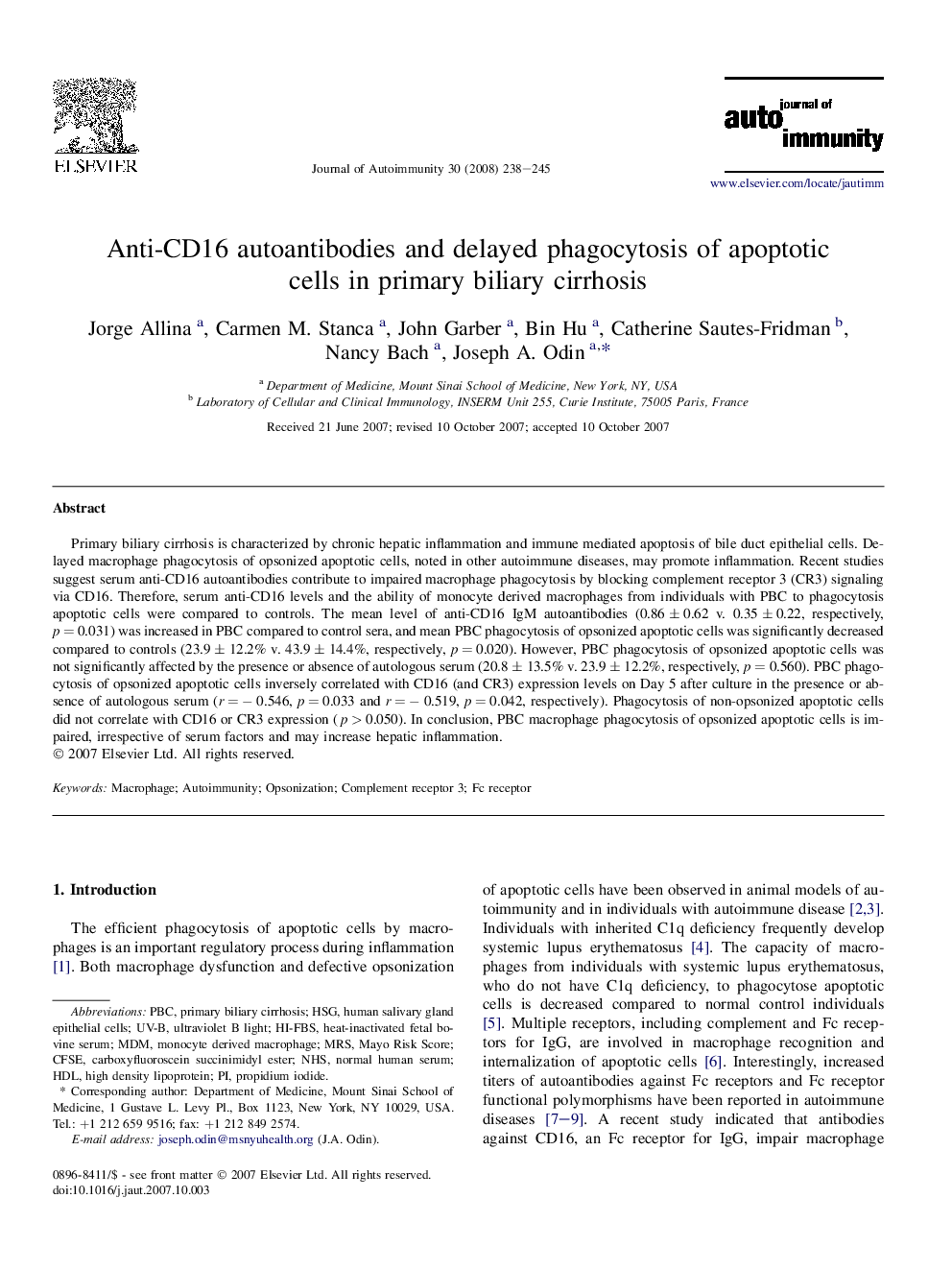| Article ID | Journal | Published Year | Pages | File Type |
|---|---|---|---|---|
| 3368344 | Journal of Autoimmunity | 2008 | 8 Pages |
Primary biliary cirrhosis is characterized by chronic hepatic inflammation and immune mediated apoptosis of bile duct epithelial cells. Delayed macrophage phagocytosis of opsonized apoptotic cells, noted in other autoimmune diseases, may promote inflammation. Recent studies suggest serum anti-CD16 autoantibodies contribute to impaired macrophage phagocytosis by blocking complement receptor 3 (CR3) signaling via CD16. Therefore, serum anti-CD16 levels and the ability of monocyte derived macrophages from individuals with PBC to phagocytosis apoptotic cells were compared to controls. The mean level of anti-CD16 IgM autoantibodies (0.86 ± 0.62 v. 0.35 ± 0.22, respectively, p = 0.031) was increased in PBC compared to control sera, and mean PBC phagocytosis of opsonized apoptotic cells was significantly decreased compared to controls (23.9 ± 12.2% v. 43.9 ± 14.4%, respectively, p = 0.020). However, PBC phagocytosis of opsonized apoptotic cells was not significantly affected by the presence or absence of autologous serum (20.8 ± 13.5% v. 23.9 ± 12.2%, respectively, p = 0.560). PBC phagocytosis of opsonized apoptotic cells inversely correlated with CD16 (and CR3) expression levels on Day 5 after culture in the presence or absence of autologous serum (r = − 0.546, p = 0.033 and r = − 0.519, p = 0.042, respectively). Phagocytosis of non-opsonized apoptotic cells did not correlate with CD16 or CR3 expression (p > 0.050). In conclusion, PBC macrophage phagocytosis of opsonized apoptotic cells is impaired, irrespective of serum factors and may increase hepatic inflammation.
